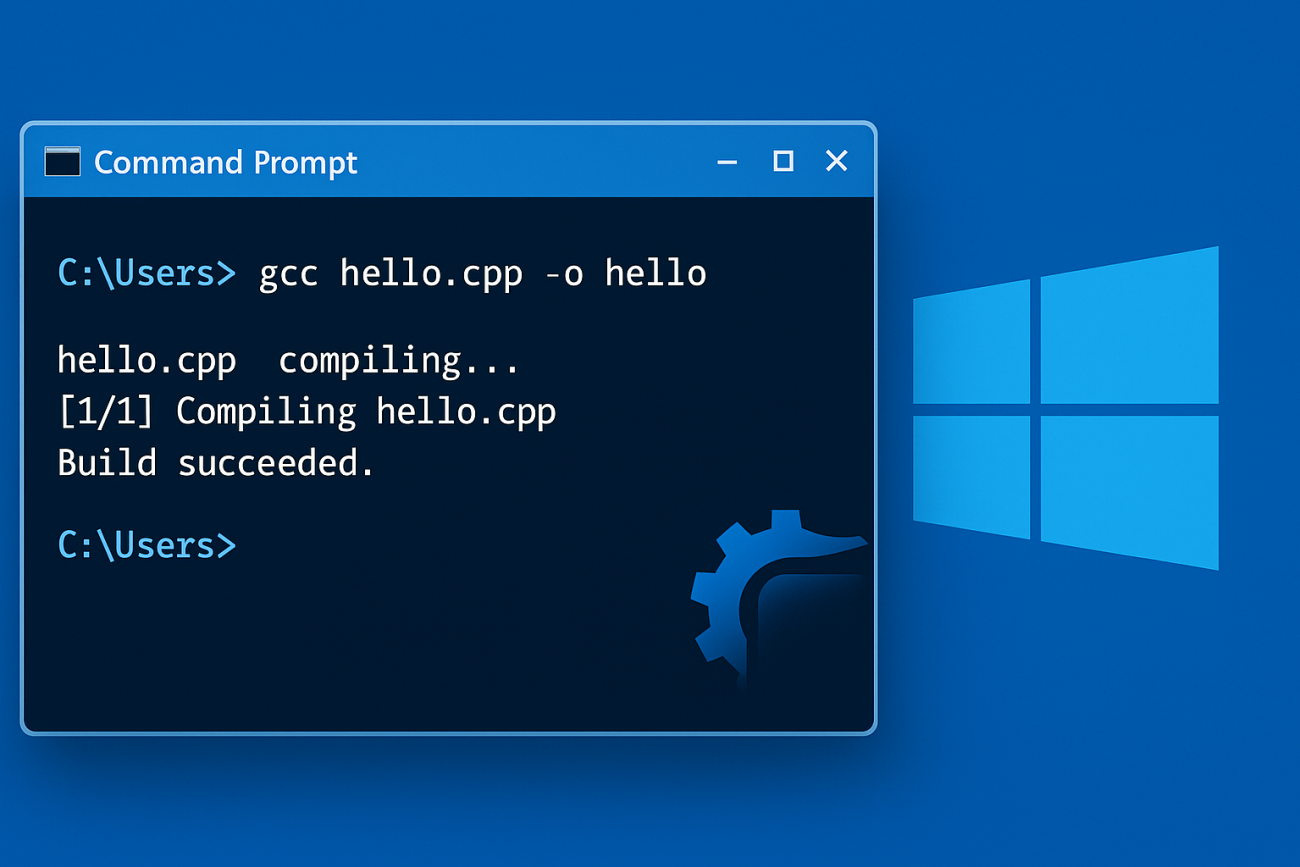MinGW, short for Minimalist GNU for Windows, is a development environment designed to bring the power of GNU tools and libraries to the Windows platform. It provides a lightweight, yet functional, set of tools that enable developers to compile and run native Windows applications using familiar Unix-like development workflows. MinGW is especially popular among programmers who require a minimalistic approach without the overhead of more comprehensive development environments.
Overview of MinGW: A Lightweight Development Environment for Windows
MinGW serves as a bridge between the GNU Compiler Collection (GCC) and the Windows operating system, allowing developers to compile C, C++, and other language programs natively on Windows. Unlike full-fledged IDEs or extensive SDKs, MinGW focuses on providing essential tools and libraries necessary for compiling and linking applications without additional dependencies. Its minimalist design makes it suitable for embedded development, cross-platform projects, and environments where resource efficiency is a priority.
The environment is open-source and community-driven, emphasizing simplicity, portability, and compatibility. MinGW does not include a Unix emulation layer like Cygwin; instead, it offers native Windows API access, ensuring that applications built with MinGW are truly native Windows applications. This characteristic makes it a preferred choice for developers who want to avoid the performance penalties or compatibility issues associated with emulation layers.
Overall, MinGW’s lightweight nature and focus on native development make it an ideal tool for those who need a straightforward, reliable environment for Windows-based software development. Its modular structure allows users to customize their setup, choosing only the components they require for their specific projects.
Key Features and Components of MinGW for Windows Users
MinGW provides a comprehensive set of features that make Windows software development accessible to users familiar with GNU/Linux development environments. The core component is the GCC compiler, which supports C, C++, and other programming languages, enabling cross-platform code development with minimal adjustments. Alongside the compiler, MinGW includes a collection of libraries, headers, and tools necessary for building Windows applications from source code.
One of MinGW’s notable features is its ability to generate native Windows executables (.exe files) that do not depend on any runtime environments like Cygwin. It also offers a linker, debugger, and standard build tools such as make, which facilitate smooth compilation workflows. Additionally, MinGW integrates with various editors and IDEs, providing flexibility for developers who prefer different coding environments.
The environment supports various Windows-specific APIs, allowing developers to write applications that leverage system resources directly. It also includes support for POSIX functions, which can be useful for porting Unix-based code to Windows with minimal modifications. By maintaining a small footprint, MinGW remains an efficient choice for compiling lightweight applications or integrating with larger development setups.
Installing and Configuring MinGW for Effective Use
Installing MinGW involves downloading the official installer, which guides users through selecting the desired components. The process typically starts with choosing the core compiler suite, along with optional libraries and tools depending on the project requirements. The installer also allows for specifying the installation directory and updating the environment variables to include MinGW’s bin directory, ensuring that command-line tools are accessible from any command prompt.
Once installed, proper configuration is essential for optimal use. This includes setting environment variables such as PATH to include MinGW binaries, which facilitates compiling code from anywhere in the command line. Developers should also verify that the correct versions of GCC and related tools are being used and may customize compiler flags or linker options based on project-specific needs. Additionally, integrating MinGW with text editors or IDEs can streamline the development workflow, enabling features like syntax highlighting, debugging, and build automation.
For ongoing maintenance, users should keep MinGW updated by periodically downloading newer versions or patches. This ensures compatibility with the latest libraries and security updates. Documentation and community resources are readily available to assist with troubleshooting, custom configuration, and advanced setup options, making MinGW a flexible and manageable environment for Windows development.
Common Use Cases and Scenarios for MinGW Deployment
MinGW is widely used in scenarios where lightweight, native Windows development is required without the complexity of larger IDEs or SDKs. Its primary application is in developing cross-platform software, where code written in C or C++ can be compiled on both Unix-like systems and Windows with minimal changes. Developers working on open-source projects often choose MinGW to ensure portability and ease of compilation across different environments.
Another common use case is embedded systems development, where resource constraints demand minimal runtime components. MinGW’s small footprint and native compilation capabilities make it suitable for creating embedded applications or tools that need to run efficiently on Windows hardware. Moreover, it is employed in academic settings for teaching programming and system programming courses, providing students with a straightforward environment to learn GNU tools on Windows.
Additionally, MinGW is used in build automation and continuous integration workflows, where lightweight, scriptable compilation environments are advantageous. Developers leverage MinGW to compile, test, and deploy Windows applications within automated pipelines without requiring heavy or proprietary tools. Its versatility and simplicity also make it a valuable tool for porting Unix-based software to Windows, enabling developers to reuse codebases with minimal adaptation.
MinGW – Minimalist GNU for Windows – remains a vital tool for developers seeking a lightweight, efficient, and native Windows development environment. Its focus on simplicity, portability, and compatibility makes it suitable for a wide variety of use cases, from cross-platform development to embedded systems. By providing essential GNU tools and libraries without the bloat of larger SDKs, MinGW continues to support effective and flexible software development on the Windows platform.

